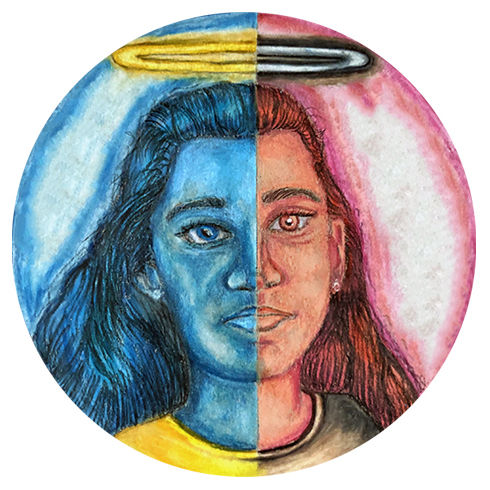Immanuel Kant on Human Nature
- Yash

- Jan 23, 2020
- 3 min read
Updated: Mar 21, 2020
Immanuel Kant believes that our human nature is that we are in constant turmoil between the Animal and Angel aspects of our soul. This means that we are in a constant battle between our personal desires and our ethical, reason-based actions. We feel the effects of our desires (Animal side) but we can use our free will – Kant believes that we are free and have free will enabling us to make coherence of the world using the Transcendental Ego, cause change through intention and enabling us to reflect upon our choices and self – to make ethical decisions which comply with Kant’s Categorical Imperative (his moral laws of the universe). Kant believes that if we were to give in to the Animal side of our soul, we would make quick, unreasonable and unethical decisions in response to a stimulus but if we were to follow our Angel, we would use reason – Kant defines ‘reason’ as an uncaused choice – to make ethical decisions following his Categorical Imperative. The moral laws of the universe are as follows: (1) The Law of Universalisability: the principles of human actions are more important than the actions itself so a good intention acts are morally correct; (2) Treat people as an end: we should never use people to our advantage as people have value. By using reason, we can comply with these two laws of morality and commit ethical actions in the world. Our angelic part of our Human Nature is what pushes us to be ethical through using reason so, therefore, using the animal side of our human nature is unethical.
Although this theory seems rather logical in terms of how easy it is to be morally upstanding, there are far too many flaws in Kant’s theory on human nature for it to be even remotely considered to be a correct theory. The first problem with this theory is that doing nothing is still counted as doing something under the Categorical Imperative (according to the Law of Universalisability). We can be held morally accountable for doing nothing but this creates an issue if we use the thought experiment of The Trolley Problem: a trolley is hurtling down a track and will kill five people but if you flick the switch, it'll change tracks and kill just one person. What would you do in this situation? Most people would flick the switch but this means you'd be violating laws of the universe (you used the one person to save the five), but if you did nothing, you'd still be held morally accountable as your inaction had intention which was bad as it ended up harming people which meant that your actions did not comply with the universalisability law of the universe. Kantian ethics are impossible to comply with as no one can be as perfect as he dictates we should be and his morals bring a conundrum which makes it difficult to do anything as we are limited by the ethics of our actions. In addition to this, nearly all acts in the world can be seen as unethical due to the Categorical Imperative. This is because selfish acts are seen as unethical but nearly all actions in the world can be classified as selfish depending on how one perceives it – when someone is acting kind, they are acting kind just to get people to perceive them favourably and help them in the future. All acts can be classified as selfish and, therefore, unethical which is illogical as not every act in the world can be unethical. Furthermore, Kant’s Categorical Imperative further restricts some actions as it deems actions without much reason to be unethical. Maternal compassion and other parental/societal instincts enable people to commit actions without thought and without weighing out the consequences in a split-second due to time constraints or the severity of the situation. Some actions are committed without reason but they cannot be morally nor ethically wrong as they are beneficial in the long run. Kant aspires for people to be perfect in his opinion of our human nature but, sadly, this is not the case and his theory on human nature seems too idealistic.

<---- I drew this piece to illustrate the idea that we can give into the angelic side (the blue side) or the animal side of who we are (the red and black side)



Comments